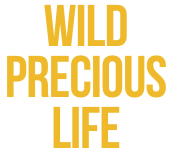31 Jan Embracing Vulnerability: Lessons from Brene Brown on Overcoming Shame
Shame and vulnerability are difficult emotions and feelings. And also prevalent.
In this TED talk, researcher Brene Brown, describes shame as endemic in our culture.
Vulnerability Hangovers
In her TED Talk ‘Listening to Shame’, Brené Brown shares a personal story about the shame she experienced after her original TED talk on vulnerability went viral. She describes this experience as a “vulnerability hangover.” But despite feeling uncomfortable, Brené stresses that vulnerability should not be equated with weakness.
Vulnerability as courage
Brené defines vulnerability as “emotional risk, exposure, and uncertainty.” And according to her research, vulnerability is actually the most accurate measurement of courage. She believes that vulnerability is the birthplace of creativity, innovation, and change, and that to be vulnerable is to allow oneself to be seen, to be honest, and to be open to new experiences.
Shame as the Swampland of the soul
And it is her studies about shame that lead to these insights, rather than study into courage, creativity and innovation.
She also draws on the Jungian analyst idea of shame as the “swampland of the soul.” The idea is not to enter and make a home and life in the swampland, but to “put on some galoshes” and get to know some of the territory.
The man in the arena
Brené draws inspiration from Theodore Roosevelt’s quote: “It is not the critic who counts…The credit goes to the man in the arena.” She notes that often the biggest critic is ourselves, running internal narratives and tapes saying “never good enough” or “who do you think you are?”
The difference between guilt and shame
Brene is clear that there is a very real distinction between guilt and shame:
“Shame is a focus on self, guilt is a focus on behaviour.”
Shame is “I am bad.” Guilt is “I did something bad.”
Guilt says: “I’m sorry. I made a mistake.”
Shame says: “I’m sorry. I am a mistake.”
The research shows that “shame is highly, highly correlated with addiction, depression, violence, aggression, bullying, suicide, eating disorders.”
While guilt, is inversely related – “the ability to hold something we’ve done or failed to do up against who we want to be is incredibly adaptive. It’s uncomfortable, but it’s adaptive.”
3 things that fuel shame
Brené identifies three things that fuel shame: secrecy, silence, and judgement.
Empathy as balm
She sees empathy as the way of addressing this epidemic and counteracting shame.
And this is something that can be helped through therapy, through close friendship and developing a vulnerability muscle.
Vulnerability Ted Talk
Here is Brene Brown’s original talk about Vulnerability, which is also well worth a watch :



No Comments